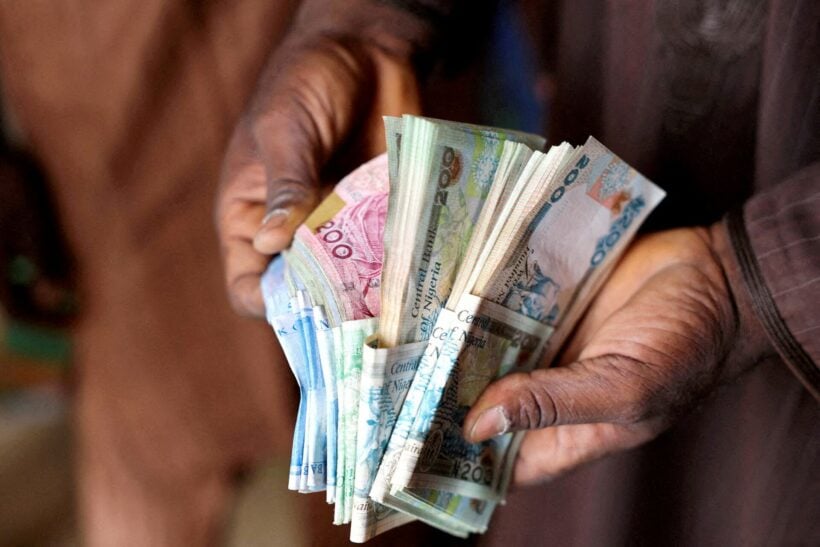
ABUJA, Oct 10 (Reuters) – The Nigerian and Ghanaian currencies are expected to fall in the next week to Thursday, while Uganda’s and Zambia’s could be relatively steady, traders said.
NIGERIA
Nigeria’s naira could lose ground due to rising dollar demand from individuals paying school fees abroad and importers stocking up for the festive season.
The central bank has only intermittently intervened to support the currency.
The naira was quoted at 1,648 to the dollar on the official market on Thursday, LSEG data showed, compared with around 1,671 a week earlier.
The currency changed hands in street trading at 1,690 naira to the dollar on Thursday.
“The panic button is 1,700 naira and as it approaches those levels the central bank has intensified intervention, but it is not enough to quench demand,” one trader said.
GHANA
Ghana’s cedi is expected to weaken further next week due to corporate foreign-currency demand, mainly from the manufacturing and energy sectors.
LSEG data showed the cedi trading at 15.88 to the dollar on Thursday, compared to 15.77 at last Thursday’s close.
“The cedi weakened slightly against the dollar this week, driven by a reduced supply of dollars despite the central bank’s 7-day funded forward support of approximately $54 million,” head of trading Stanbic Bank Ghana Chris Nettey said.
“We anticipate a similar trend in the coming sessions,” he added.
UGANDA
Uganda’s shilling is seen broadly stable, underpinned by healthy inflows of hard currency from remittances and mid-month tax payments.
Commercial banks quoted the shilling at 3,670/3,680 to the dollar, compared to last Thursday’s close of 3,660/3,670.
“Remittances are coming in and we expect the volumes to increase for the remainder of October and going into November,” one trader said.
ZAMBIA
Zambia’s kwacha is likely to be little changed.
On Thursday the kwacha was trading at 26.37 per dollar from 26.20 a week ago.
“The kwacha is anticipated to remain rangebound, with factors of demand and supply dictating the currency’s next move,” Zambia National Commercial Bank said in a note.
(Reporting by Chijioke Ohuocha, Christian Akorlie, Elias Biryabarema and Chris Mfula; Editing by Alexander Winning)

